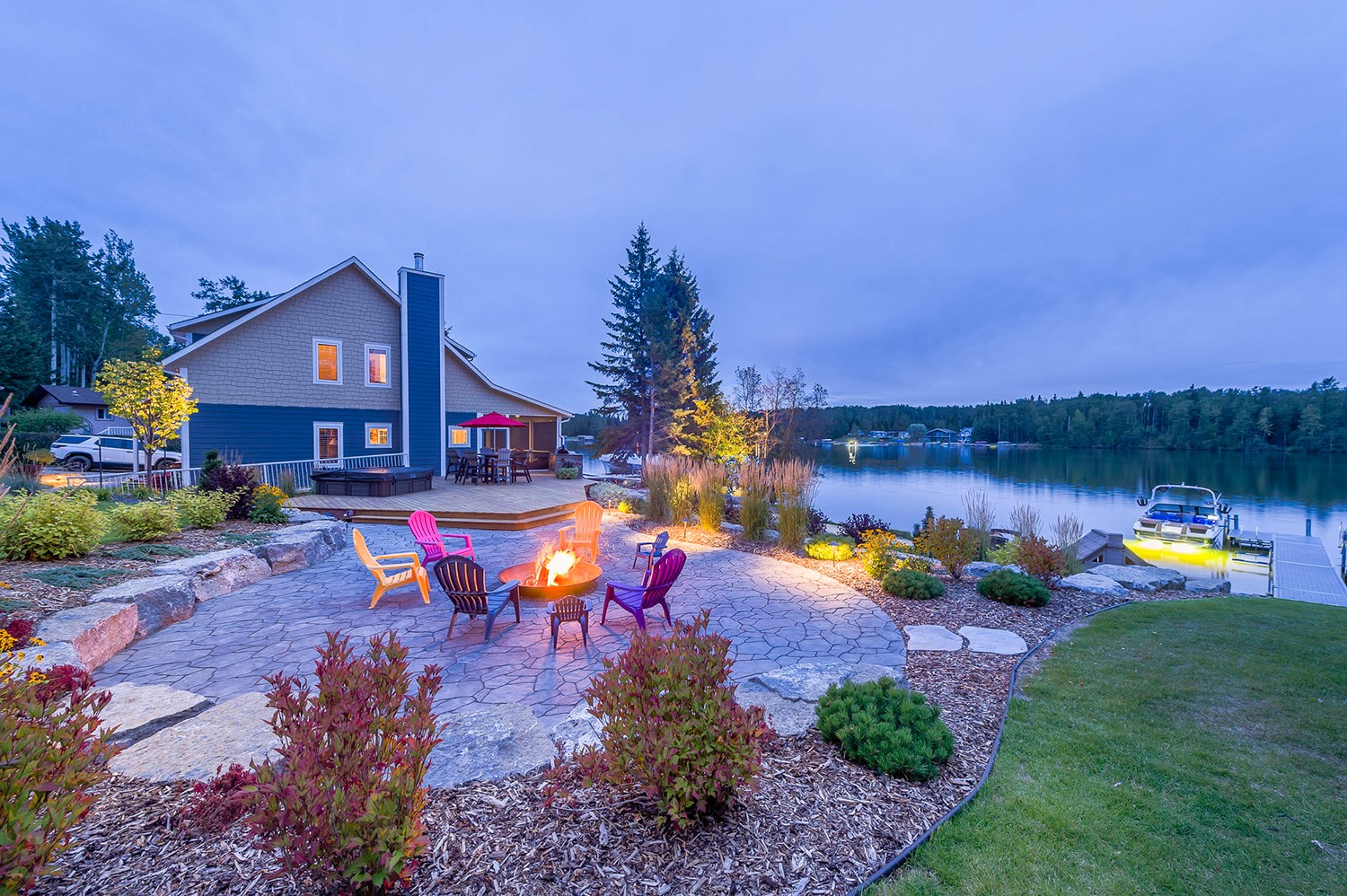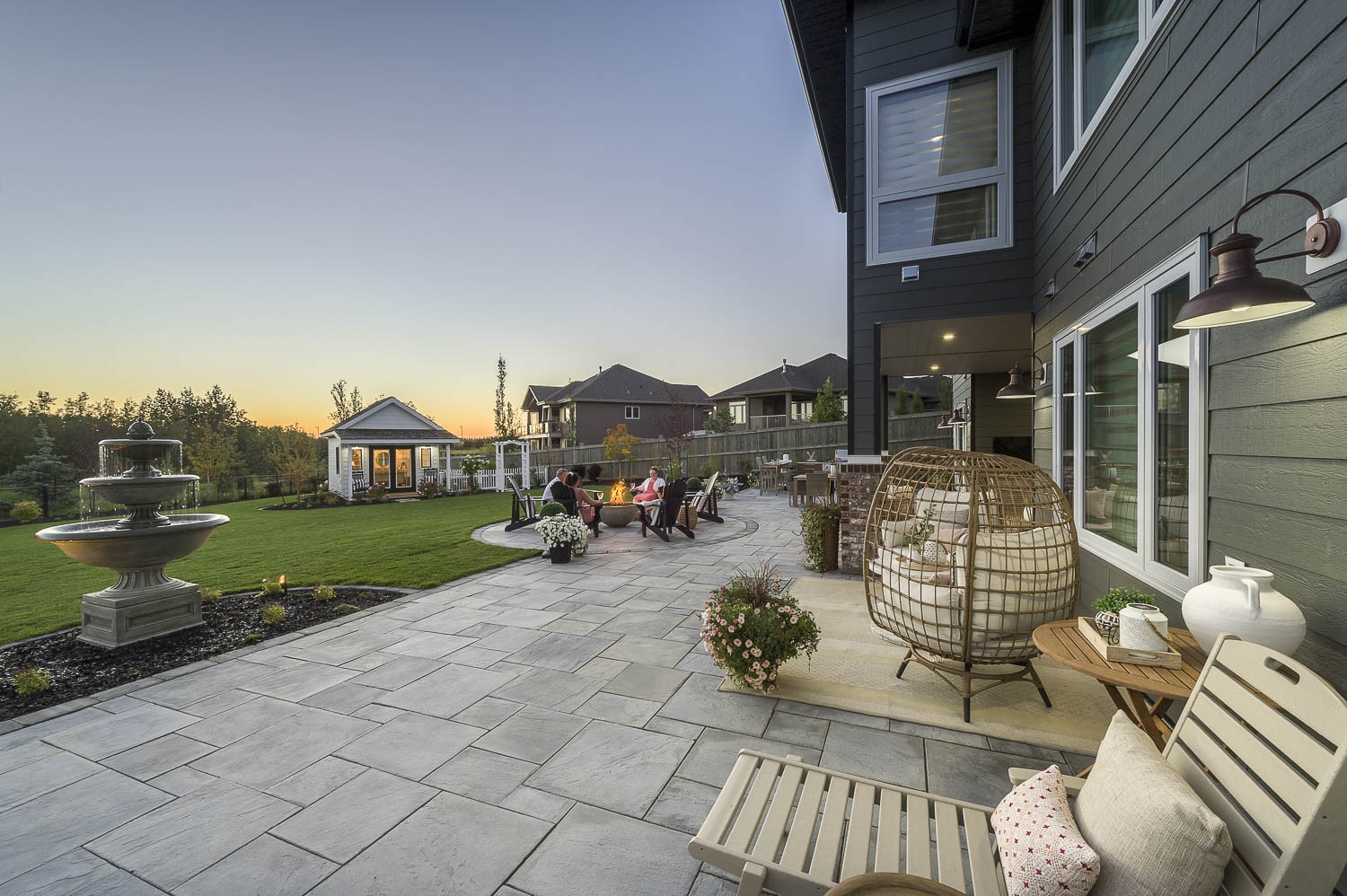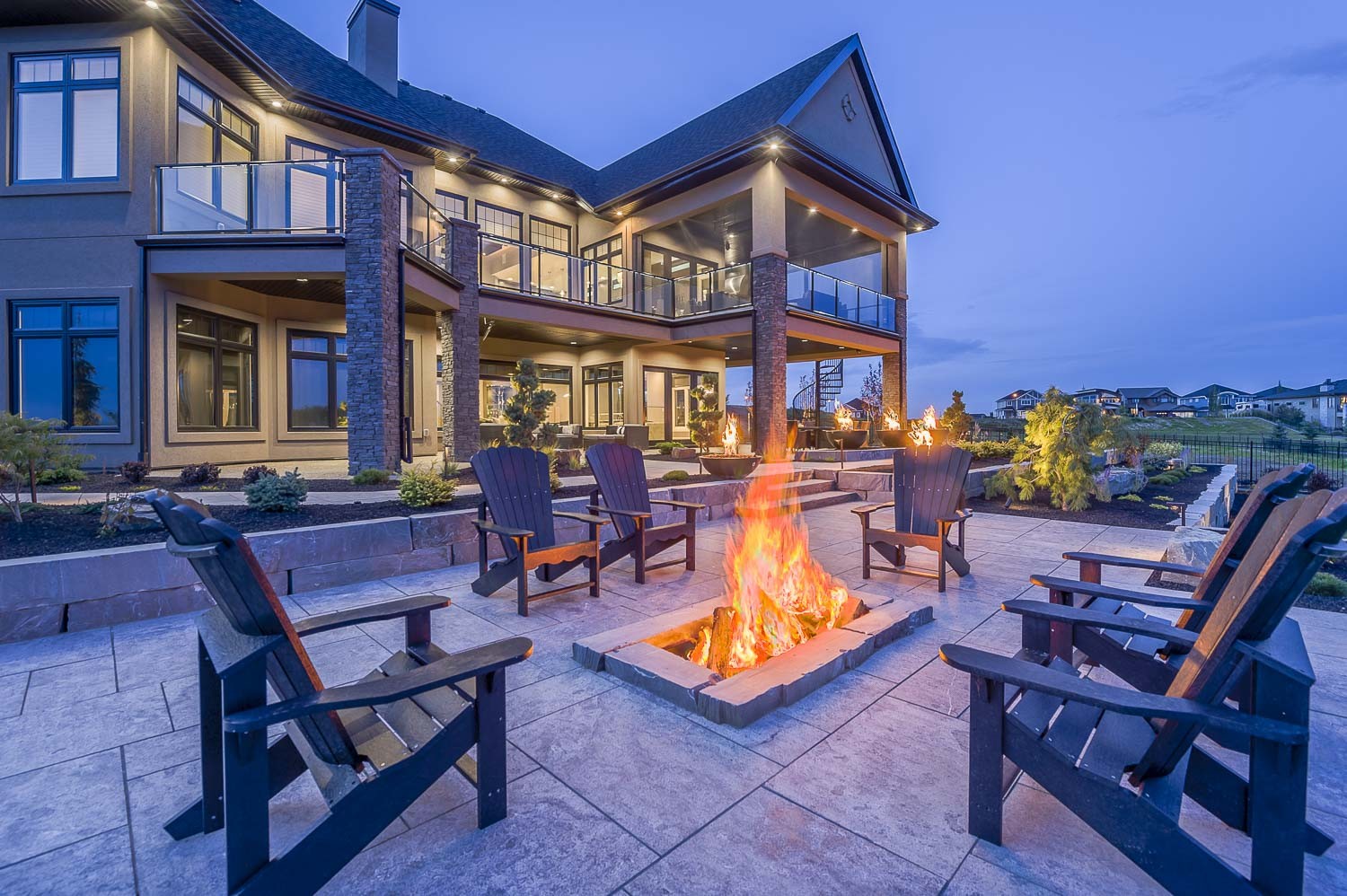Blog
A Powerful Tool for Sustainable Home Design
Introduction
Welcome to our blog post on residential landscaping, where we explore how this powerful tool can enhance the sustainability of your home design. Whether you're a homeowner looking to create an eco-friendly oasis or a designer seeking innovative ways to incorporate nature into living spaces, residential landscaping holds endless possibilities. In this article, we'll delve into the importance and benefits of residential landscaping, as well as its role in sustainable home design. So grab your gardening gloves and get ready to discover how you can transform your property into a green haven that not only looks stunning but also helps protect our planet!
The Importance of Residential Landscaping
Residential landscaping serves as an essential tool in creating a harmonious and sustainable home environment. It goes beyond simply enhancing the aesthetic appeal of your property, but also contributes to the overall well-being of both occupants and the surrounding ecosystem.
One major importance of residential landscaping lies in its ability to improve air quality. Trees and plants act as natural filters, absorbing pollutants such as carbon dioxide and releasing oxygen into the atmosphere. By incorporating green spaces within your home design, you can significantly reduce air pollution levels and create a healthier living environment for yourself and future generations.
In addition to improving air quality, residential landscaping plays a crucial role in conserving energy. Strategically placed trees provide shade during hot summer months, reducing the need for excessive air conditioning usage. Similarly, well-designed landscapes can act as windbreaks during colder seasons, minimizing heat loss from your home.
Moreover, residential landscaping promotes biodiversity by providing habitats for various species of birds, insects, and small mammals. Creating a diverse range of plant species not only adds beauty to your surroundings but also supports local ecosystems by attracting pollinators like bees and butterflies.
Furthermore, engaging with nature through residential landscaping has been proven to have numerous psychological benefits. Spending time outdoors among greenery helps reduce stress levels while promoting relaxation and improved mental health.
Understanding the importance of residential landscaping is crucial when aiming for sustainable home design strategies that benefit both you as homeowners and the environment at large. By integrating elements that enhance biodiversity conservation efforts while mitigating climate change impacts on our planet's resources - we contribute towards building more resilient communities capable of withstanding future challenges together!
The Benefits of Residential Landscaping
Residential landscaping offers a multitude of benefits that go beyond just enhancing the visual appeal of your home. It has the power to transform your outdoor space into a sustainable and functional oasis. Let's explore some of the advantages that come with investing in residential landscaping.
Landscaping can significantly increase the value of your property. A well-designed and maintained landscape can make a lasting impression on potential buyers, making it an attractive selling point if you ever decide to put your house on the market.
Moreover, residential landscaping promotes environmental sustainability by improving air quality and reducing water runoff. By incorporating native plants, installing rain gardens or permeable paving, you can create an eco-friendly environment that conserves resources and supports local wildlife.
In addition to its environmental benefits, residential landscaping also contributes to our overall well-being. Being surrounded by greenery has been proven to reduce stress levels and improve mental health. Having a beautiful outdoor space where you can relax and connect with nature is invaluable for our physical and emotional well-being.
Furthermore, landscaping provides opportunities for recreational activities such as gardening or hosting outdoor gatherings with family and friends. It offers us a chance to reconnect with nature without having to leave our homes.
Residential landscaping enhances privacy by strategically placing trees or shrubs around your property perimeter. This not only creates a sense of seclusion but also acts as natural insulation against noise pollution from neighbors or nearby roads.
The benefits of residential landscaping extend far beyond aesthetics alone. From increasing property value to promoting sustainability and improving overall well-being – investing in thoughtful landscape design is undoubtedly worth considering for any homeowner looking for long-term rewards!
The Principles of Sustainable Home Design
When it comes to sustainable home design, there are a few key principles that can guide homeowners in creating an environmentally-friendly and energy-efficient space. These principles encompass various aspects of the design process, from materials selection to energy usage and beyond.
One important principle is the use of renewable resources. This means utilizing materials that can be replenished naturally over time, such as bamboo or reclaimed wood. By choosing these types of materials, homeowners can help reduce their impact on forests and promote sustainability.
Another principle is energy efficiency. This involves incorporating features into the home design that minimize energy consumption, such as installing high-efficiency appliances or using insulation with a high R-value. By reducing energy usage, homeowners not only save money on utility bills but also contribute to a more sustainable future.
Water conservation is also crucial in sustainable home design. Implementing low-flow fixtures and rainwater collection systems can help reduce water waste and preserve this valuable resource for future generations.
Additionally, sustainable home design emphasizes the importance of natural lighting and ventilation. Designing spaces that maximize natural light can decrease reliance on artificial lighting sources while promoting better health and well-being for occupants.
Sustainable home design considers the overall environmental impact throughout the entire lifecycle of a building - from construction to demolition. Choosing eco-friendly construction methods and incorporating recycled or recyclable materials helps minimize waste generation while reducing carbon emissions.
By adhering to these principles of sustainable home design, homeowners have the power to create spaces that are not only aesthetically pleasing but also kinder to our planet. With careful consideration given to every aspect of residential landscaping, we can build homes that prioritize both comfort and sustainability without compromising style or functionality!
The Process of Residential Landscaping
The process of residential landscaping involves several key steps that contribute to creating a sustainable and visually appealing outdoor space. It begins with an initial consultation between the homeowner and a professional landscaper, where ideas and goals are discussed.
Once the vision for the landscape is established, the next step is to conduct a thorough site analysis. This includes assessing factors such as soil conditions, drainage patterns, sunlight exposure, existing plants or structures, and any potential challenges or opportunities presented by the site.
Based on this assessment, a detailed design plan is created which outlines the layout of different elements such as pathways, gardens beds, trees, shrubs, water features or outdoor living areas. The choice of materials used in construction also plays a crucial role in ensuring sustainability and longevity.
After finalizing the design plan with the homeowner's approval, implementation can begin. This typically involves site preparation like grading or excavation followed by installation of hardscaping elements such as walkways or retaining walls. Plantings are carefully selected based on their suitability for local climate conditions and ecological benefits.
Regular maintenance is essential to ensure that your residential landscape remains healthy and vibrant over time. This may include watering plants appropriately; controlling weeds; pruning trees and shrubs; fertilizing as needed; monitoring for pests or diseases; and adjusting irrigation systems when necessary.
By following these steps in the process of residential landscaping you can transform your outdoor space into an eco-friendly haven that adds value to your home while minimizing negative environmental impacts.
The Benefits of Sustainable Home Design
Sustainable home design is not just a passing trend; it is an essential aspect of creating a harmonious and eco-friendly living space. By incorporating sustainable principles into the design of your home, you can enjoy numerous benefits that go beyond aesthetics.
One of the key advantages of sustainable home design is reduced energy consumption. Energy-efficient features such as solar panels, proper insulation, and energy-saving appliances can significantly lower your utility bills. In addition to saving money, reducing energy consumption also helps reduce greenhouse gas emissions and combat climate change.
Another benefit of sustainable home design is improved indoor air quality. Traditional building materials often contain harmful chemicals that can release toxins into the air over time. Sustainable homes prioritize using non-toxic materials that promote healthier indoor environments for you and your family.
Furthermore, sustainable home design encourages water conservation through various methods like rainwater harvesting systems and low-flow fixtures. These measures not only help reduce water waste but also contribute to sustainability by conserving this precious resource.
Incorporating natural elements in landscaping is another advantage of sustainable home design. By planting native plants and trees, you can create a beautiful outdoor space while promoting biodiversity and supporting local ecosystems.
Investing in sustainable home design increases the overall value of your property. As more people become environmentally conscious and seek eco-friendly homes, having a sustainably designed property becomes an attractive selling point.
By embracing sustainable principles in your residential landscape design choices today, you are investing in a greener future for yourself and generations to come without compromising on comfort or style!
Residential landscaping is not just about creating a visually appealing outdoor space; it is also a powerful tool for sustainable home design. By incorporating environmentally-friendly practices and principles into our landscapes, we can make significant contributions towards conserving resources and minimizing our impact on the planet.
Through careful planning and implementation, residential landscaping can help reduce water consumption, improve air quality, provide habitat for wildlife, and enhance the overall well-being of homeowners. It allows us to create harmonious spaces that seamlessly blend with nature while providing functional areas for relaxation and recreation.
By following the principles of sustainable home design – such as using native plants, employing efficient irrigation systems, maximizing natural lighting and ventilation – we can create landscapes that are not only beautiful but also eco-friendly. These sustainable practices contribute to reducing energy consumption, lowering carbon emissions, promoting biodiversity preservation, and maintaining ecological balance.
Furthermore, engaging in residential landscaping provides an opportunity for individuals to reconnect with nature. Spending time outdoors surrounded by greenery has numerous mental health benefits such as stress reduction and improved mood. In today's fast-paced world filled with technology-driven lifestyles, having access to a well-designed landscape at home becomes even more crucial in bringing balance back into our lives.
So whether you are planning to revamp your existing landscape or starting from scratch in a new property development project - consider the power of residential landscaping as an effective means of achieving sustainability goals while creating a stunning environment around your home.
Embrace this transformative approach to design by collaborating with professional landscapers who understand the importance of integrating sustainability into their work. Together we can shape a future where every residence is not just aesthetically pleasing but also contributes positively towards building a greener planet for generations to come. Start your journey towards sustainable living through residential landscaping today!
Remember: Your little patch of earth has immense potential!
For more information, you can contact The Jansen Group at 780.399.4200 or email them at office@thejansengroup.ca. You can also visit their website at https://thejansengroup.ca/contact to learn more about their services and expertise.


